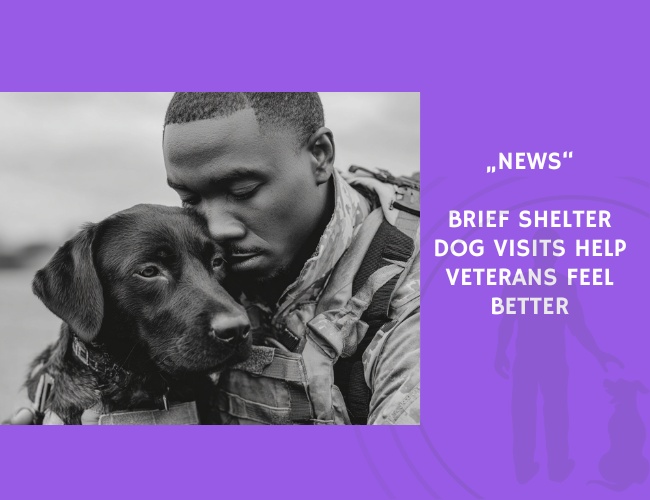Veterans transitioning to post-secondary education often face emotional and academic stress. A recent study by Emily Webberson and colleagues explored whether a 30-minute unstructured interaction with shelter dogs could support both veteran mental wellbeing and canine welfare.
Thirty veterans from a mid-size public university in the southern United States participated, each paired with a screened shelter dog. Activities were voluntary and included petting, playing, brushing, talking, and feeding treats. Researchers used a pictorial mood scale to assess veteran arousal and emotional valence before and after the session, while shelter dog behavior was observed at multiple time points.
Post-interaction, veterans consistently reported a more pleasant mood and described the experience as positive and memorable. Many veterans highlighted the dogs’ behavior—such as seeking contact or calming down during the session—as especially impactful.
Behavioral analysis of the dogs revealed that they initially exhibited signs of fear and high arousal (e.g., jumping, reduced posture), but these behaviors notably decreased midway through the interaction. The researchers interpret this shift as evidence of increased canine relaxation during the session.
This mixed-methods study adds to a growing body of research showing that mutual benefit can arise from structured and unstructured human-animal interactions. In this case, brief, unstructured enrichment not only boosted veteran wellbeing but also helped reduce shelter dogs’ stress levels—suggesting promising implications for future programs in veteran services and animal welfare.
Source: Emily Webberson, Kelsey Schroeder, John-Tyler Binfet, and Amy C. Stellato. 2024-04-04. “Supporting animals and veterans through enrichment: An exploratory study on a brief canine socializing intervention.” Human-Animal Interactions. https://doi.org/10.1079/hai.2024.0009










